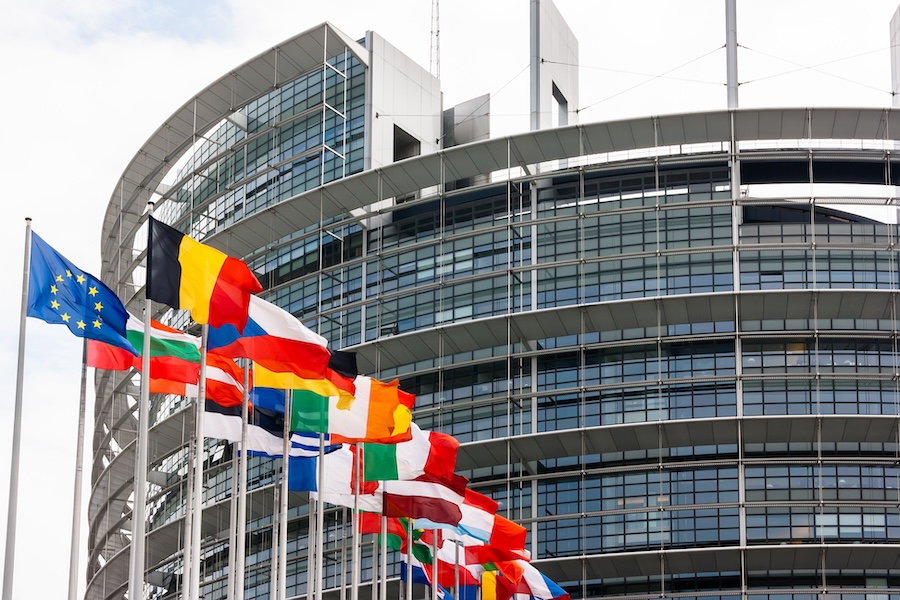On 9 July 2023 New Zealand and the European Union signed a free trade agreement in Brussels, following the necessary domestic legal processes to implement the agreement, it officially comes into force today.
Kiwi exporters are $100 million better off today with the NZ-EU FTA entering into force says Trade Minister Todd McClay.
“This is all part of our plan to grow the economy. New Zealand’s prosperity depends on international trade, making up 60 per cent of the country’s total economic activity. It is only through a strong economy that we can reduce the cost of living and pay for quality public services like schools and hospitals.
“This is a significant achievement for New Zealand and follows more than 15 years of lobbying, persuading and negotiating.”
The agreement secures tariff reductions for Kiwifruit, wine, seafood and many other products and includes commitments on services and investment, ensuring that New Zealanders can compete fairly in the EU market in these sectors.
To grow awareness of the opportunities this agreement presents the Government will undertake an information campaign to help kiwi businesses grow trade with the EU.
“Trade supports one in four kiwi jobs, and we rely on strong relationships with international partners to increase productivity, grow export opportunity, and boost the resilience of our economy,” Mr McClay says.
The agreement will increase market access for New Zealand exporters and contribute to the Government’s ambitious target of doubling exports by value in 10 years.
The EU is New Zealand’s fourth-largest trade partner, with two-way goods and services trade worth $20.2 billion in 2022, accounting for 10.3 per cent of New Zealand’s total trade in goods and services.
“The EU is an important and trusted partner for New Zealand. We look forward to deepening both economic and people-to-people connections further,” adds McClay.
Export NZ Executive Director Josh Tan says the Free Trade Agreement, despite its limitations, is set to deliver immediate outcomes for Kiwi exporters from today.
“With an earlier than expected entry into force date, New Zealand horticulture exports will benefit immediately from the Agreement. Kiwifruit will see a saving this season of $43 million, while New Zealand onion growers can expect to see $3 million in tariff savings.
“Our service exporters can now compete in the EU market on a more level playing field with local offerings and others in-market, like the UK and Singapore.
“While we can’t call it a gold-standard agreement, there are significant benefits for a number of growing industries in New Zealand,” says Tan.

Josh Tan.
He says that with several new regulations introduced in the European Union recently, exporters will need to familiarise themselves with all relevant EU laws and take steps to ensure their compliance.
“To support exporters, ExportNZ has worked with New Zealand law firm, MinterEllisonRuddWatts on a paper to help understand their requirements. This free resource is available to read on the ExportNZ website.
Business Canterbury says the agreement is a game-changer for the Canterbury region saying that the immediate tariff eliminations and new quota opportunities will boost Canterbury’s export revenue significantly over the next five years.
“This agreement is a game-changer for our members and the wider Canterbury business community. It’s not just about the immediate financial gains from reduced tariffs, but also about the long-term opportunities for growth and partnership with European markets,” says Leeann Watson, Business Canterbury Chief Executive.
“The timing of the FTA’s entry into force means that Canterbury’s horticulture exports will benefit from substantial tariff savings this season, with onion growers expecting $3 million in tariff savings. In total, Canterbury should be in line to generate hundreds of millions of dollars in additional export revenue over the next five to seven years, which is perfect timing given the challenging economic conditions we are seeing across the country right now.
“Beyond agriculture, service exporters are now better positioned to compete in the European market, levelling the playing field against competitors from the UK, Singapore, and local businesses.
“The agreement also facilitates the movement of staff and their families into the European market, which is crucial for businesses looking to expand their operations or collaborate internationally,” Watson adds.




